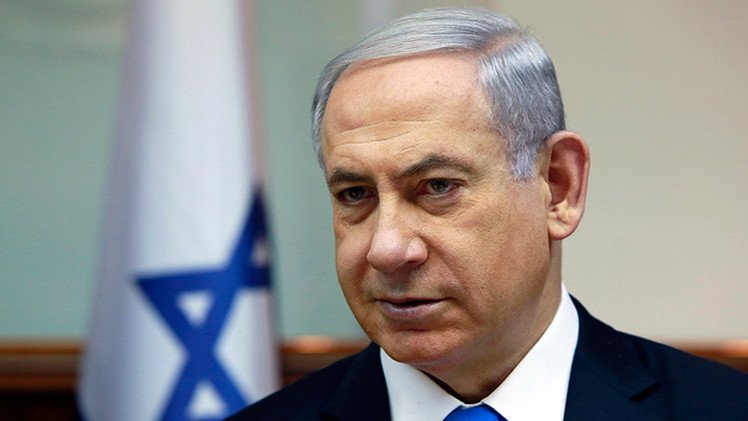Netanyahu Says Operation Against Iran Opens ‘Regional Possibilities’ Amid Renewed U.S. Push for Gaza Hostage Deal
Netanyahu is also reportedly planning a visit to Washington in the coming two weeks, aiming to push forward a diplomatic breakthrough to end the Gaza war and normalize ties with a broader range of Muslim-majority nations.

ERBIL (Kurdistan24) — Israeli Prime Minister Benjamin Netanyahu said Sunday that Israel’s military operation against Iran has created “broad regional possibilities,” while reiterating that securing the release of hostages held by Hamas in Gaza remains the nation’s highest priority, according to The Times of Israel.
“First of all, [we need] to free the hostages,” Netanyahu stated during a visit to a Shin Bet security facility in southern Israel. “Of course, we will also have to solve the Gaza issue, to defeat Hamas, but I believe that we will achieve both tasks.”
The comments, interpreted by local media as a shift toward prioritizing a deal to free the approximately 50 remaining hostages in Gaza, come as the United States increases pressure on Israel to reach a ceasefire and resolve the months-long war. Washington is reportedly advancing a wider regional strategy that includes normalization agreements between Israel and several Muslim-majority states—especially Saudi Arabia and Syria.
Later Sunday evening, Netanyahu convened a high-level ministerial meeting at the IDF’s Southern Command Headquarters in Beersheba to discuss the Gaza war and ongoing hostage negotiations. Defense Minister Israel Katz, other cabinet members, and senior IDF officers attended the meeting, which ended without a concrete decision. Further talks were scheduled for Monday, The Times of Israel reported.
Arab mediators had hoped Israel would agree to send a delegation to Cairo during the Beersheba meeting to advance negotiations. According to an Arab diplomat cited by The Times of Israel, Monday will also see Israeli Strategic Affairs Minister Ron Dermer travel to Washington to meet with U.S. officials before another round of indirect talks in Cairo.
Sources say Dermer will face mounting pressure from the Trump administration to bring the Gaza war to an end. One major point of contention in the talks remains Hamas’s demand for a permanent ceasefire, while Israel continues to push for only a temporary cessation of hostilities, preserving the option to resume military operations.
Humanitarian aid distribution is another obstacle. Hamas, backed by Arab mediators, is demanding a return to older aid mechanisms or the establishment of a new system. The current U.S.- and Israeli-supported Gaza Humanitarian Foundation (GHF) has been criticized for requiring civilians to cross dangerous zones, sometimes under Israeli fire, to retrieve basic supplies.
Mediators had earlier hoped to bring Israeli negotiators to Doha to discuss a compromise proposal merging U.S. envoy Steve Witkoff’s latest offer with Hamas’s response. However, Israel’s sudden launch of its opening strikes against Iran on June 13 put those efforts on hold.
Netanyahu is also reportedly planning a visit to Washington in the coming two weeks, aiming to push forward a diplomatic breakthrough to end the Gaza war and normalize ties with a broader range of Muslim-majority nations.
According to Israeli military sources cited by Channel 12, the IDF is looking to conclude its ground campaign in Gaza, assessing that there are limited gains left without putting hostages at further risk.
U.S. President Donald Trump has continued to press for a deal. On Sunday, he wrote on his Truth Social platform, “MAKE THE DEAL IN GAZA. GET THE HOSTAGES BACK!!!” Hours earlier, Trump had again urged Israeli prosecutors to drop their case against Netanyahu, framing the prime minister as essential to the ongoing negotiations.
Beyond Gaza, Trump is also reportedly seeking to expand the Abraham Accords, an initiative launched during his first term to normalize ties between Israel and Arab nations. In an interview with Fox News Sunday, the president said, “We have some really great countries in there right now... and I think we’re going to start loading them up because Iran was the primary problem.”
According to The Times of Israel, U.S. Ambassador to Turkey Tom Barrack, who also serves as special envoy to Syria, echoed that sentiment in remarks to Anadolu Agency, saying, “What just happened between Israel and Iran is an opportunity for all of us… and Turkey is key in that new road.”
Meanwhile, indirect Israel-Syria talks appear to be gaining momentum. American Rabbi Abraham Cooper, who recently met with Syria’s new Islamist leader, Ahmed al-Sharaa, told Kan News that a meeting between Netanyahu and Sharaa could be on the horizon with Trump’s backing. “Without [Trump], it will go slowly,” Cooper said. “With him, anything is possible.”
A Syrian official confirmed to Kan that ongoing talks with Israel are progressing and stressed that the U.S. remains a “key factor.” The current discussions reportedly focus on the withdrawal of IDF forces from a buffer zone established in southern Syria, with no mention so far of the Golan Heights, a major sticking point in past negotiations under the Assad regime.
The official added that the current Syrian government opposes Iran and its proxy militias, including Hezbollah and Hamas—further aligning it, at least tacitly, with U.S. and Israeli interests.
As diplomacy intensifies across multiple fronts, Netanyahu’s comments suggest that while defeating Hamas remains a strategic goal, Israel is under increasing international pressure to prioritize diplomacy—and the lives of the remaining hostages.